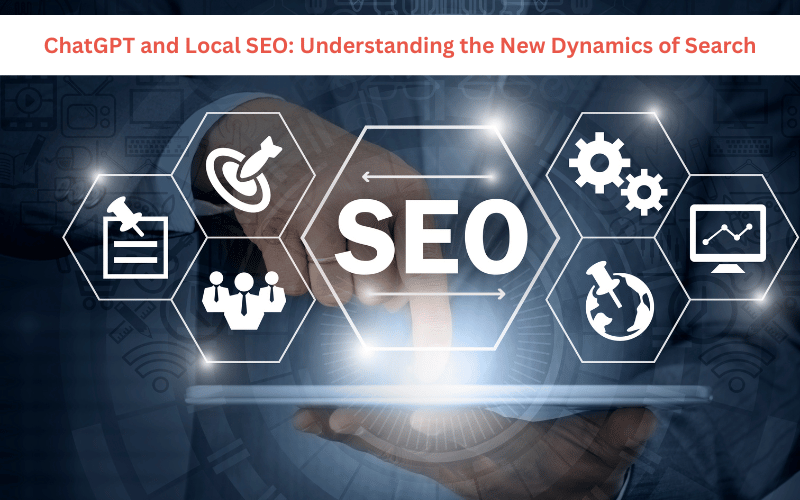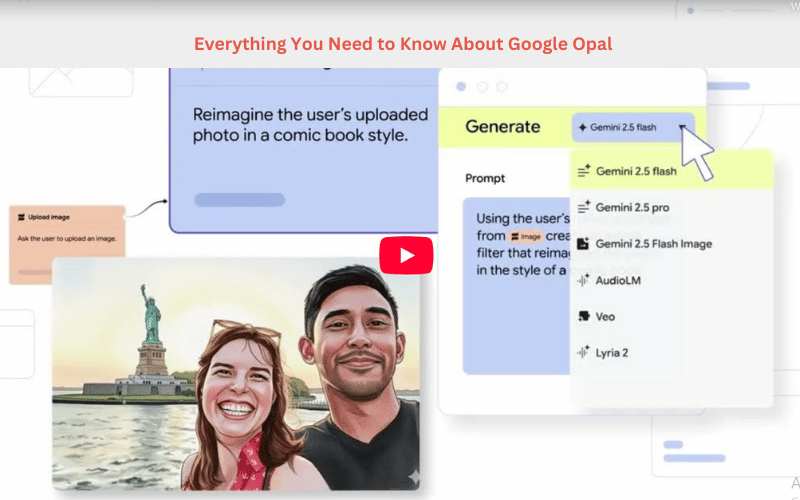In today’s fast-paced digital world, artificial intelligence (AI) tools like ChatGPT are transforming the way people search for information online. Whether you’re a small business owner or offer SEO services in Montreal, it’s no longer just about ranking on Google—it’s about being the answer in AI-generated results.
If you’ve noticed tools like Bing AI or Google’s AI Overviews popping up with quick, smart answers instead of a list of links, you’ve already seen the shift in action. So, how do you show up in these AI responses, especially for local searches like “best cafe near me”? Let’s break it down.
What Is ChatGPT (and Why Does It Matter for Local SEO)?
ChatGPT is a conversational AI tool that mimics human-like responses. It doesn’t just match keywords—it understands the intent behind the question and delivers thoughtful, structured answers.
While it’s not a search engine by itself, it’s now embedded in search platforms like Bing. That means users searching for local businesses may rely on AI summaries instead of scrolling through traditional search results.
What this means for you:
If you’re a digital marketing agency or local service provider in Montreal, you now need to optimize not just for Google—but for AI engines too.
Search Has Become Conversational—And That Changes Everything
Gone are the days when people typed simple keywords like “Montreal plumber.” Now, users are asking things like:
-
“Who’s the best-rated plumber near me open on weekends?”
-
“Affordable wedding photographers in Montreal with reviews?”
AI tools like Bing AI and ChatGPT parse these detailed, natural questions and pull structured answers from sources across the web.
Tip: Your business won’t appear unless your data is clean, complete, and machine-readable.
Traditional SEO Isn’t Dead—But It’s Evolving
Yes, rankings still matter. But in an AI-first search landscape, it’s more about being the source of truth. That means:
- Using schema markup to tell search engines your business name, hours, services, and location.
- Optimizing your Google Business Profile (previously Google My Business).
- Earning reviews, local citations, and making sure your details are consistent across all platforms.
When search engines and AI models read this structured info clearly, they’re more likely to feature you in AI responses.
Why Structured Data Is Now Your SEO Superpower
Structured data helps AI understand your business in context. It’s like speaking the language of machines.
Let’s say someone in Montreal asks, “Where can I find an emergency dentist open now?” If your website has proper LocalBusiness schema, AI models can instantly recognize your service type, location, hours, and contact details—and show your business as a recommended answer.
For SEO experts in Montreal, becoming fluent in structured data and knowledge graph optimization is now a must, not a maybe.
How to Stay Visible in the Age of AI Search
To win in today’s search environment:
- Focus on clear, authoritative content that answers specific questions.
- Use FAQ sections to target conversational queries.
- Keep your business profiles updated on Google, Bing, Yelp, and other local platforms.
- Add structured data (JSON-LD schema) to every service and location page.
- Make your brand visible in AI data sources, not just organic search.
Making Your Business Ready for Conversational Search
People don’t just type keywords anymore—they ask full questions, like they’re chatting with a real person. That’s the power of conversational search, and your business content needs to keep up.
Here’s how to get started:
-
Answer real questions directly on your website.
Think like your customer. What would they ask an AI assistant about your service? Build helpful FAQ pages or embed common Q&As into your product or service pages. -
Use long-tail keywords naturally.
Instead of focusing on just “SEO services,” include phrases like “affordable SEO services in Montreal for local businesses”. These sound more like what users actually say, and AI tools prioritise that. -
Write content that solves real problems.
AI is designed to surface the most relevant and useful answers. Blogs, guides, or articles that genuinely help your audience stand a better chance of being cited by AI results.
Reviews Matter More Than Ever in AI Search
Online reviews have always influenced rankings, but with AI in the picture, their role is even bigger.
AI models don’t just see your star ratings—they read the tone, scan for key details, and summarize feedback. So it’s essential to:
- Encourage happy customers to leave thoughtful reviews.
- Respond to every review, positive or negative.
- Keep it real. Don’t fall for shady review hacks (like the Reddit-hidden review tricks being discussed). Authenticity builds trust with users and AI.
Get Found on Maps and Directories That AI Reads
Even as AI changes how search looks, being listed in the right places still matters. Directories like:
- Google Business Profile
- Yelp
- Industry-specific listings
- Bing Maps
…are often where AI tools pull your business info from.
Make sure your business name, address, phone number, hours, and categories are accurate and consistent across all platforms. This helps both people and AI find you with ease.
Your Website Still Matters (A Lot)
AI may give quick answers, but your website is where customers go to learn more and take action. That makes it your most important digital asset.
Make sure your website is:
- Mobile-friendly and easy to navigate: Especially for users who arrive from AI-powered search tools.
- Loaded with helpful info: Cover your services, pricing, location, and FAQs in a clear and friendly way.
- SEO-optimized and structured: Use traditional SEO practices plus modern enhancements like schema markup so AI models can easily understand your pages.
Rethink Local SEO for an AI-Driven Future
We’re just at the beginning of AI transforming local search. The businesses that adapt early will see the biggest benefits. Here’s how you can stay ahead:
- Stay updated on changes in how Google, Bing, and ChatGPT deliver results.
- Prioritize accurate, well-structured content that both humans and AI can digest.
- Make your reviews part of your strategy—they now speak louder than ever.
- Keep your website strong—AI doesn’t replace websites; it highlights the best ones.
Pro Tip for Businesses in Montreal
If you want to make sure your business is optimized for both traditional and AI-driven search, working with a local SEO expert in Montreal or a future-ready digital marketing agency in Montreal can make a big difference. They’ll help you align your content, schema, listings, and review strategies to meet the new demands of AI-powered discovery.
Final Thoughts: The Future of Local Search Is Already Here
AI tools like ChatGPT aren’t just changing how people search—they’re changing who gets seen. The businesses that provide clear, structured, and helpful information will show up in both search results and AI-generated answers.
Whether you’re in Montreal or anywhere else, the takeaway is simple:
Don’t just try to rank. Try to be the answer.











